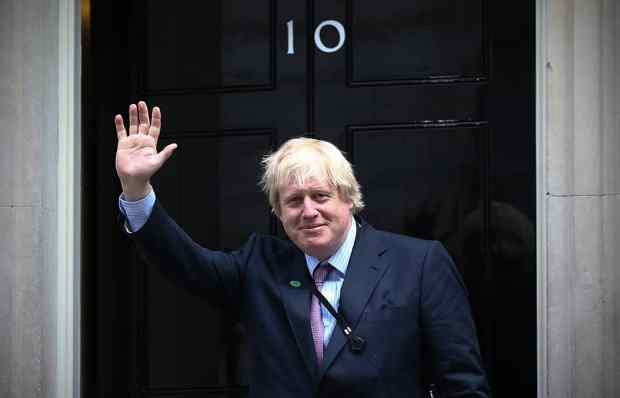Spinning plates
Sir: Kate Andrews is right to highlight the looming risk of inflation (‘Rishi’s nightmare’, 6 March), but to say that the UK has known barely any inflation for almost a generation misses a very painful point. It may be true for consumer prices. Low interest rates and quantitative easing, along with other ill-advised stimuli, have caused huge inflation over the past two decades in the single greatest expense throughout most working people’s lives: the cost of housing. Along with rash promises such as the triple lock, it has been responsible for a vast transfer of wealth from young to old, from the less well-off to the more affluent, and unlike the 1970s and early 1980s, it has not been accompanied by rampant wider inflation eroding the real-terms debt of mortgage-holders. This makes the threat of interest rate rises all the more dangerous; it is not just the public purse which is alarmingly indebted. As with all chancellors from Gordon Brown onwards, Rishi Sunak seems intent on making matters worse, with his recent attempts to keep the plates spinning with extended cuts to stamp duty, and taxpayer-backed 95 per cent mortgages.
David Brewis
Eton, Berkshire
Bad planning
Sir: There is now much talk about how the economy will bounce back and recover (‘The Covid recovery Budget’, 6 March). My greatest fear is a further impetus to housebuilding. The unprecedented building onslaught of the past ten years precipitated by David Cameron’s much maligned (quite rightly) National Planning Policy Framework hugely emasculated the planning defences, and is disfiguring our towns, villages and countryside. To save further fields, councils allow high density developments. A greenfield is replaced with an urban sprawl. No back gardens, no trees. Residents are powerless, as indeed are councils, to halt this. The character of England is being lost. Most bad policy can be reversed, but you can’t unbuild houses.
Stephen Horsfield
Haywards Heath, West Sussex
Safe hands of the SNP
Sir: I support Scottish independence, though not the SNP, and share your despondency about the extent to which democracy has been besmirched (‘A democratic deficit’, 6 March). While I accept the democratic legitimacy of intervention by Westminster, which you recommend, I fear it will do more to stir the very grievance that has amplified support for the SNP. For the first time in a while, polls show the Scottish government’s response to sexual harassment allegations has stunted its ascent and a Holyrood majority, which seemed inevitable a few weeks ago, now hangs in the balance. As Nick Ruane highlighted (Letters, 6 March), the domestic failings and democratic defiance of the SNP are abundantly evident to the Scottish electorate. Therefore, I humbly submit that the best response is to leave the SNP to its own devices and instead allow the Scottish electorate to be the executioner in just seven weeks’ time.
Ewan Gurr
Dundee
What Chips heard
Sir: In Craig Brown’s very entertaining review of Chips Channon’s Diaries(Books, 6 March), we learn how the new HM Edward VII jumped up at dinner, crying: ‘I want to pump shit.’ Since the subsequent royal event, shared by the keen diarist through an open door, consisted only of passing water, we must surmise that either Chips or his editor were ignorant of the urinary expression ‘pump ship’. It is still common among naval and yachting types. I suppose we should be grateful that the late temporary monarch didn’t say ‘point Percy at the porcelain’.
Libby Purves
Suffolk
Gesturing at cars
Sir: Further to Mary Wakefield’s article (‘Reinventing the wheel’, 6 March) on the attempted transformation of London into a cyclists’ paradise, the expansion of London’s Ultra Low Emission Zone this year accelerates the disposal of thousands of serviceable cars owned by inhabitants of the suburbs. This diktat takes no account of the increase in emissions from replacing existing vehicles with new, and the cost of replacement falls almost entirely on lower income households. Two other points: only 7 per cent of carbon emissions in Europe are from cars, and emissions during manufacture make an all-electric car carbon-neutral only after about 60,000 miles. Why do we put up with such gesture politics?
Peter Harrison
London SW13
On yer bike
Sir: I find it an irritation that the authorities who urge us to ‘get on our bikes’ never seem to consider that some of us cannot ride one, having never learned how. I cannot ride a bike. My father thought it was dangerous so he paid for riding lessons instead. After all, a pony has a leg at each corner.
Dr M.C. Moore
Sutton Heath, Suffolk
Overblown operas
Sir: In her review of Luigi Rossi’s opera Il palazzo incanto (Arts, 6 March), Alexandra Coghlan refers to the 40-strong band employed for the Dijon Opera production as being ‘typical of its time’ (1642) in Roman opera. In fact the typical instrumental forces for Roman (and indeed Venetian) opera of the period — given in a palazzo, since Rome had no public opera house until the Teatro Tordidona opened in 1671 — was about a quarter of that number.
The truth is that Leonardo Garcia Alarcón, the conductor of the Dijon production, has long been notorious for his grotesquely inflated editions of Baroque operas and oratorios, versions that make Beecham’s colourful and liberally populated Messiah look positively restrained.
Brian Robins
East Knoyle, Wiltshire
Got something to add? Join the discussion and comment below.
Get 10 issues for just $10
Subscribe to The Spectator Australia today for the next 10 magazine issues, plus full online access, for just $10.
You might disagree with half of it, but you’ll enjoy reading all of it. Try your first month for free, then just $2 a week for the remainder of your first year.














Comments
Don't miss out
Join the conversation with other Spectator Australia readers. Subscribe to leave a comment.
SUBSCRIBEAlready a subscriber? Log in